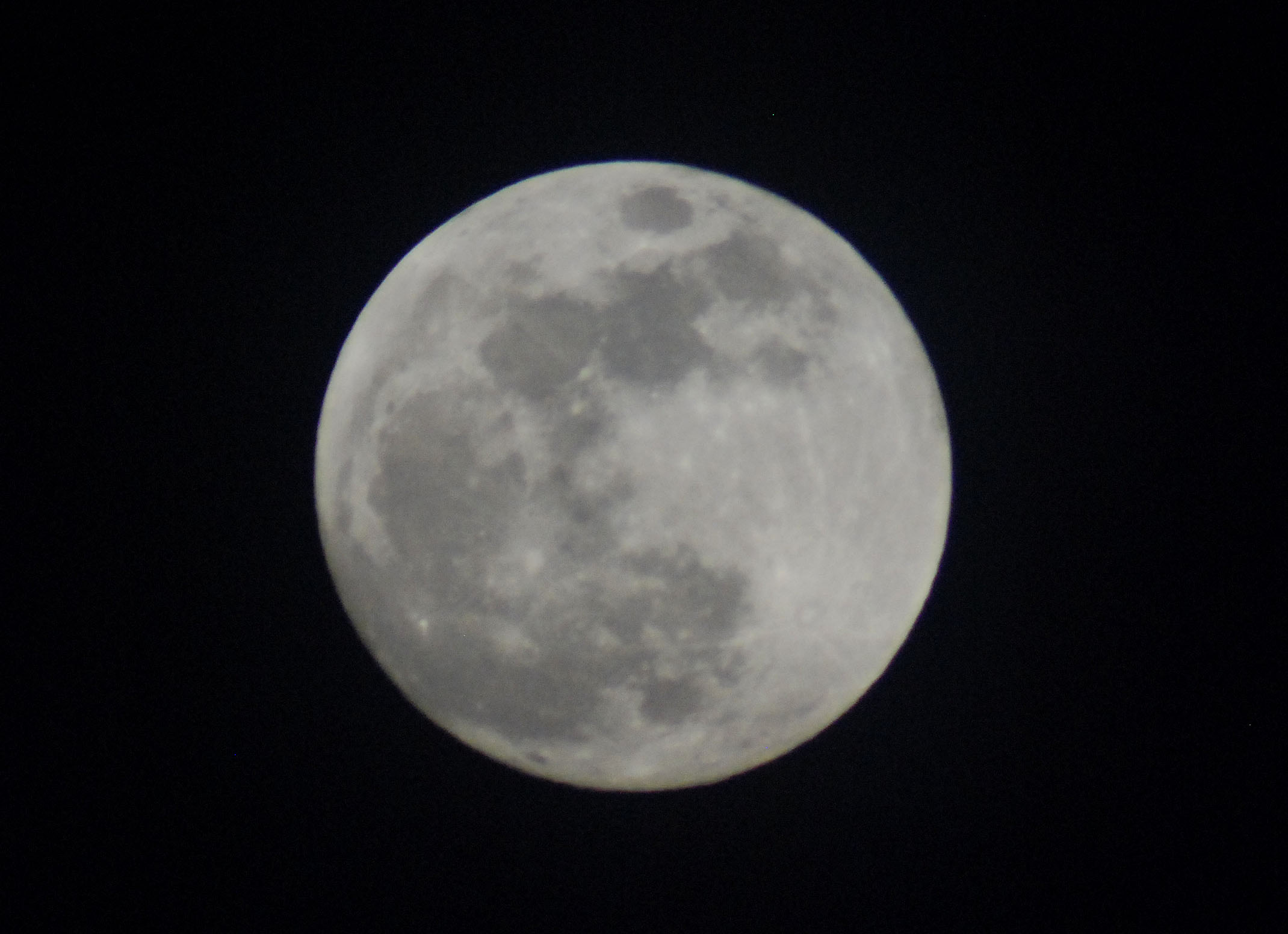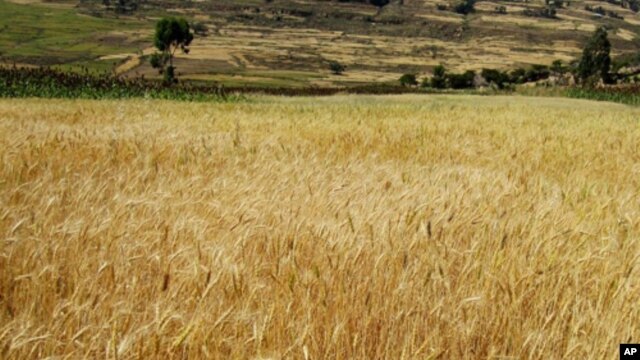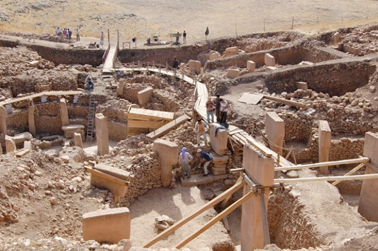By
the bright light of the second full moon of Enten, the men and women gathered
atop the sacred hill. Long they had laboured, to cover this place with earth and rock. The great
roof beams of cedar had been lifted and taken away; too precious not to reuse now the
once thick forests had grown scarcer, remnants of the lost world that once was.
With
the roof removed the temple had slowly been filled with earth; painstaking and
backbreaking, basket after basket. Tear ridden yet relentless they had been,
filling in the divine house built with the sweat of their ancestors, carved
from the limestone with axes of flint.
As
they had poured earth over the polished flagstones they had risen higher alongside
the carved stones and pillars. Their hands had lovingly caressed the sacred images
of beasts, some long since departed from these lands. Never again would these
images be seen by people, as long as the moon waxed and waned and the winds
shook the grasses of this sacred place. It had been a labour of love, a long
goodbye, a requiem to a world now gone.
Lahamu of the Anunnaki,
the last Priestess to serve this place, was now reciting the records learned by
word of mouth. Her lineage spoke of an unbroken line of first born women, each
generation entrusted with the sacred duty to this temple and land. She spoke of the old
times, when the people had followed herds, gathering what fruits and seeds that
they could. Life had been a struggle to survive against wild animals and the
constant threat of starvation. Yet here, on this high plateau, all had changed.
For
amid the wild grass had grown a wheat, unlike those known before. Knowledge of wheat had long been known; its seed could be ground, mixed with
water and made into a paste and cooked on hot stones to make bread. But its harvest had always been laborious, as the seed fell all too readily from the stem. That
was until here, at this special place, had been found a wheat whose ears
stayed attached to the plant. It could be gathered without waste. Across the
plateau the seed had been cast and the plants tended.
The
story of generations moved on as Lahamu spoke further, how the stars had
aligned in their favour and the Anunnaki had been blessed. The earth grew warmer, the rains were
plentiful, the wheat grew in abundance and the people were freed from the
tyranny of once ever present famine. Their numbers swelled as did the grain. Bread became
a nourishing staple.
In
thanks this place was built. A womblike bowl carved into the soft limestone.
Pillars were raised, adorned with pictographs of bird, beast and insect; all
those that once had abounded here. The people grew in number and others came and
traded with them. The knowledge of the wheat that never fell with the wind was
spread. A gift of the earth to her children and freely shared. Always they gave
thanks here, this secret place; surely chosen by the gods were the Anunnaki.
Yet
amid the roots of the prettiest flower can dwell the most poisonous scorpion,
for creation was flawed, even here in this blessed place.
As
the earth warmed, the rains, once abundant grew scarcer. The plateau began to dry;
its ancient fertility beginning to fail. And at this time, beyond the eastern
horizon a fear took hold and invaders arrived, the Utukku. As beast men they were. With
sharp flint spears in their hands, the Utukku moved swiftly, born on the backs of
horses. They took lives without guilt and ate what they stole. Not content to
break the earth themselves. They would steal women and children and enslave
them to be borne far away. Every few years they would
return, greedy and warlike, demanding ever more while the harvests grew smaller.
Tribute
of food and labour they required. They demanded all secrets passed down from
generation to generation. The knowledge of this place they had an inkling of, a fabled treasure house.
They wanted its treasures, of polished stones and glazed earthenware for themselves,
to turn this temple into a stable for their horses.
So
Lahamu recited, and so her words slowed, for to her time she had come. As if in
recognition her own womb had failed, for from her alone of her line a son
was first born. The unbroken line of priestesses was no more. A sign it was of
changing times; now was the time of the warrior. Her son, Anshar, was now keeper of
the oral tradition. Long time spent listening; he now stepped forward to stand
behind his mother. She fell to her knees, her voice now as cracked and dry as
the earth. Her head bowed.
He
spoke now of how the earth changed, how the stars wheeled above. He it would be
who would lead the first, chosen, people to new lands to the south between the great rivers. They would
find another fertile land to till, they would take, they would conquer, for a lesson they
had been taught by the beast men to the east. Those around shook their spears attempting to overcome their shame, for blood would now fall like rain.
Above the temple one space was left to be filled, a last act of sacrifice and thanks to be given to the earth mother. Anshar raised the black obsidian blade. He wept as he drew the glass across his mother's throat. His younger sister Kishar began the keening as their mother pitched forward into her grave, grateful to remain in this secret place. Her body was covered with earth but marked not with stones. The only sign of this place was a scattering of wild wheat seed, cast that Lahamu may have bread in the afterlife and the broken ground be obscured. And the earth turned and the stars wheeled above.
******
"What do you think you have discovered here at Potbelly Hill, Dr Schmidt?"
"I cannot stress the importance of this place in human history, enough," the Professor replied, "I believe this is where Neolithic man first began the cultivation of grain. This site is 12,000 years old, at the end of the last ice age, which means humanity was capable of monumental constructions whilst still in hunter gatherer societies. And yet just here they began to become farmers, far earlier than we previously had thought had occurred in the so called fertile crescent. It is here that our ancestors began to puposely grow grain yielding, harvestable grasses which would become modern varieties of wheat; where bread became the staff of life. Bread is an efficient and reliable form of nuttition. Is it any wonder why bread is culturally significant in our everday language, history and even modern religious ritual? First came the temple, then the city; all built on bread. "
"What do the carvings and pictographs signify?"
"They show all the different animals that once were denizens of this area," Dr Schmidt replied, "Interestingly there are no hunting scenes, despite there being the remains of butchered game scattered around. Its almost like the Garden of Eden, but what they signify we can only guess."
"But why was it purposely filled, so it has been forgotten these 12,000 years?"
Dr Schmidt sighed. "Climate change is a constant in history, that is clear. The world was emerging from the Ice Age and maybe a changing climate, over cultivation and other factors had a hand to play.It is a mystery, as if this place was meant to be kept a secret. It still had some sacred, forgotten significance: there are graves from both the Byzantine era and relatively recent Islamic burials. But why it was abandoned with such finality, we can only guess. Perhaps this is where humanity lost its innocence, where society changed to the modern one of the haves and have nots. Bread freed us from the constant need to gather food and allowed us to think beyond the immediate, but it also required a set system of labour. No longer were we as carefree as the birds and beasts but we were tied to particular areas, chained to an embryonic work ethic. Maybe this temple's abandonment was symbolic of our expulsion from this Garden of Eden?"
"So Potbelly Hill should be as significant as Stonehenge?"
""More so," smiled Dr Schmidt, "This is where our modern world began, predating the Bronze Age, Sumeria and other Mesopotamian societies. But please, don't use the clumsy English translation of this place; I prefer the Turkisk, Göbekli Tepe."
Above the temple one space was left to be filled, a last act of sacrifice and thanks to be given to the earth mother. Anshar raised the black obsidian blade. He wept as he drew the glass across his mother's throat. His younger sister Kishar began the keening as their mother pitched forward into her grave, grateful to remain in this secret place. Her body was covered with earth but marked not with stones. The only sign of this place was a scattering of wild wheat seed, cast that Lahamu may have bread in the afterlife and the broken ground be obscured. And the earth turned and the stars wheeled above.
******
"What do you think you have discovered here at Potbelly Hill, Dr Schmidt?"
"I cannot stress the importance of this place in human history, enough," the Professor replied, "I believe this is where Neolithic man first began the cultivation of grain. This site is 12,000 years old, at the end of the last ice age, which means humanity was capable of monumental constructions whilst still in hunter gatherer societies. And yet just here they began to become farmers, far earlier than we previously had thought had occurred in the so called fertile crescent. It is here that our ancestors began to puposely grow grain yielding, harvestable grasses which would become modern varieties of wheat; where bread became the staff of life. Bread is an efficient and reliable form of nuttition. Is it any wonder why bread is culturally significant in our everday language, history and even modern religious ritual? First came the temple, then the city; all built on bread. "
"What do the carvings and pictographs signify?"
"They show all the different animals that once were denizens of this area," Dr Schmidt replied, "Interestingly there are no hunting scenes, despite there being the remains of butchered game scattered around. Its almost like the Garden of Eden, but what they signify we can only guess."
"But why was it purposely filled, so it has been forgotten these 12,000 years?"
Dr Schmidt sighed. "Climate change is a constant in history, that is clear. The world was emerging from the Ice Age and maybe a changing climate, over cultivation and other factors had a hand to play.It is a mystery, as if this place was meant to be kept a secret. It still had some sacred, forgotten significance: there are graves from both the Byzantine era and relatively recent Islamic burials. But why it was abandoned with such finality, we can only guess. Perhaps this is where humanity lost its innocence, where society changed to the modern one of the haves and have nots. Bread freed us from the constant need to gather food and allowed us to think beyond the immediate, but it also required a set system of labour. No longer were we as carefree as the birds and beasts but we were tied to particular areas, chained to an embryonic work ethic. Maybe this temple's abandonment was symbolic of our expulsion from this Garden of Eden?"
"So Potbelly Hill should be as significant as Stonehenge?"
""More so," smiled Dr Schmidt, "This is where our modern world began, predating the Bronze Age, Sumeria and other Mesopotamian societies. But please, don't use the clumsy English translation of this place; I prefer the Turkisk, Göbekli Tepe."




No comments:
Post a Comment